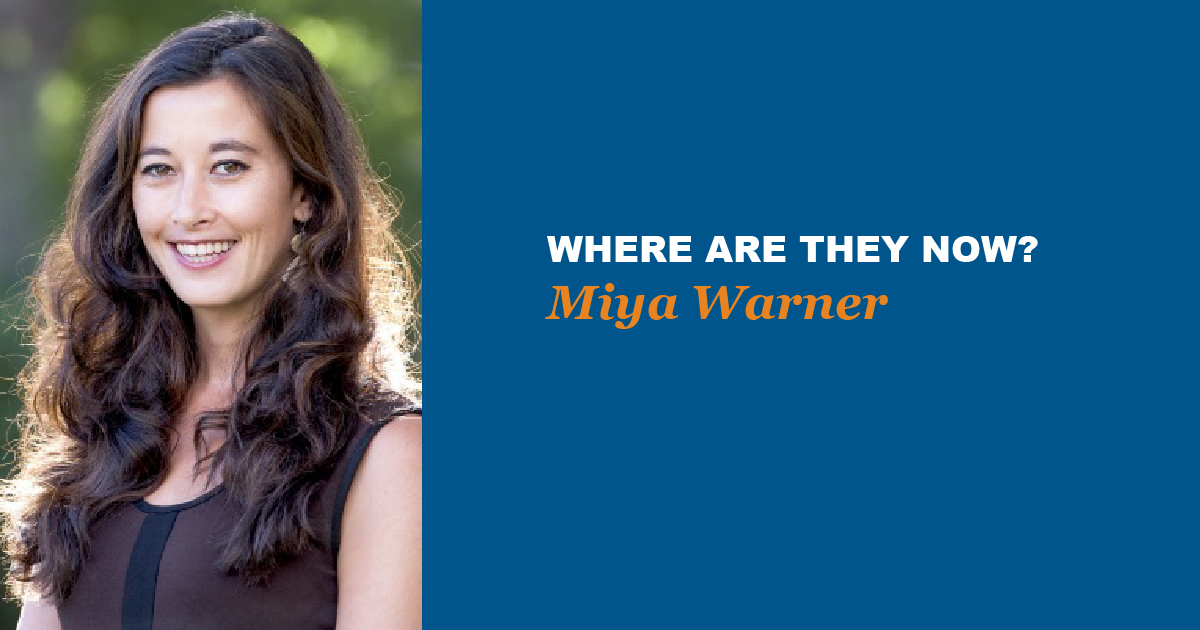A Q&A with Miya Warner, 2011 MDRC Doctoral Fellow
Where Are They Now?

This is the fifth in a series of Q&As with past participants in MDRC’s Judith Gueron Minority Scholars Program in which they reflect on their experiences at MDRC and discuss what they’re up to today.
 About Miya Warner: Warner earned her MA and PhD in sociology and education from Teachers College, Columbia University. She is currently a principal researcher in the Center for Education Research and Innovation at SRI International, where she co-leads the College and Career Pathways program area. She designs and leads large-scale, mixed-methods evaluations of education policies and programs, including the evaluation of the California Linked Learning District Initiative, a multiyear study of a major systemic effort in nine districts to transform high schools through industry-themed programs of study that integrate rigorous academic instruction with a demanding technical curriculum and work-based learning.
About Miya Warner: Warner earned her MA and PhD in sociology and education from Teachers College, Columbia University. She is currently a principal researcher in the Center for Education Research and Innovation at SRI International, where she co-leads the College and Career Pathways program area. She designs and leads large-scale, mixed-methods evaluations of education policies and programs, including the evaluation of the California Linked Learning District Initiative, a multiyear study of a major systemic effort in nine districts to transform high schools through industry-themed programs of study that integrate rigorous academic instruction with a demanding technical curriculum and work-based learning.
Why did you choose to apply for and accept a doctoral fellowship at MDRC?
I was drawn by MDRC’s stellar reputation in the research community for conducting rigorous studies with an equity lens. Also, my dissertation was on math course-taking in New York City’s small, non-selective high schools, and MDRC conducted the impact evaluation on New York City small schools of choice — so I was eager to learn from researchers with deep expertise in the topic area I was studying.
Describe a typical day as a doctoral fellow at MDRC.
I’d spend a good amount time working on my dissertation but would also attend staff meetings, brown bags, and other social gatherings. I remember there was a fun Friday afternoon beer-and-snack situation to kick of the weekend when I was there!
How did the fellowship support your dissertation research?
I spent my days at MDRC finalizing my conceptual framework, cleaning data, and refining my analysis plan. I was able to present to MDRC staff on my early descriptive findings and got valuable feedback on issues I should consider for my final analysis. This feedback definitely pushed me to improve my research, and, in the end, the hard work paid off and I received an AERA Outstanding Dissertation Award for Division L — Educational Policy and Politics.
What advice do you have for students who are interested in applying for the doctoral fellowship at MDRC?
My advice for doctoral fellows is to really leverage your time at MDRC and maximize your exposure to MDRC staff — invite people to lunch or ask if you can have a few minutes to pick their brain and learn more about what they do. People are extremely nice and accommodating, but they’re also extremely busy, so you need to be a little proactive. My only regret is that I was a little too shy and didn’t take as much advantage of these opportunities as I could have.
What would you say are the benefits of being a doctoral fellow at MDRC?
I’d say there’s both the direct benefits of having time and space to work on your dissertation and getting feedback from experienced researchers on your work. But it’s also a cool work-based learning experience in that you get exposure to what it is like to work at a research organization and can consider whether it’s a good fit for you. You’ll also broaden your professional network!
How did your time spent as a doctoral fellow at MDRC influence your professional pursuits or personal growth?
During my time spent as a doctoral fellow, I got to see what it would be like to work at a not-for-profit research organization. I loved the collaborative nature of the work and the opportunities to learn from more experienced researchers. In the end, this exposure led me to broaden my job search beyond just academic positions. In the end, I got a job at SRI International, an organization that does similar education research to MDRC, and I have been extremely happy here.





